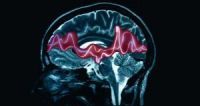Publication
Article
Surgical Rounds®
Quantifying Quality of Life After Surgery for Seizures
Author(s):
For patients who emerge from epilepsy surgery seizure-free, the complex relationship between depression, anxiety, and seizure control does not guarantee better quality of life.

For patients who have seizures, epilepsy surgery can vastly improve quality of life (QOL). But for those who emerge from the surgery seizure-free, the complex relationship between depression, anxiety, and seizure control does not guarantee better QOL.
A team of researchers across the United States recently examined the association between QOL and depression, anxiety, and seizure outcomes over time. The study population of 373 patients treated at 7 epilepsy centers underwent comprehensive diagnostic workup before surgery. The researchers also evaluated the patients’ psychiatric status and QOL at 3, 6, 12, 24, 48, and 60 months after surgery.
Patients who attained excellent or good postoperative seizure control had significantly improved QOL compared to those with fair or poor seizure control. This finding differed slightly from previous studies that indicated residual seizure activity decreases QOL significantly. In this study, only patients who emerged from surgery with rare or breakthrough seizures reported significantly improved QOL.
Though health-related QOL returned to levels similar to those seen in the normal population, it was markedly lower among patients who reported persistent anxiety or depression symptoms. Over time, anxiety scores had a slightly stronger independent effect on QOL than depression scores.
The researchers reaffirmed the International League Against Epilepsy (ILAE) consensus recommendation that a single breakthrough seizure within 1 year of an intervention or 3 times the length of the longest prior seizure-free interval should not constitute treatment failure.
Because depression and anxiety are strong independent predictors of poor QOL after epilepsy surgery, the authors recommended addressing postsurgical psychiatric comorbidities early and aggressively.






